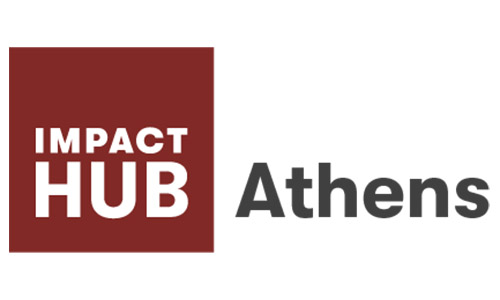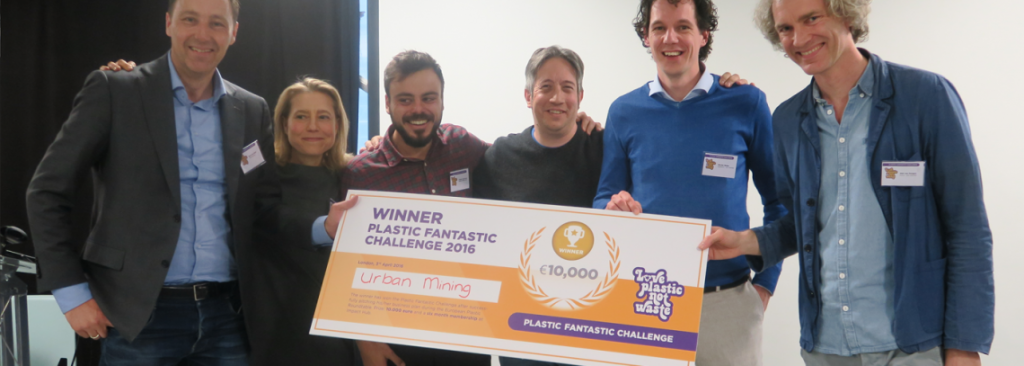Dutch entrepreneur Marco Kortland has won the Plastic Fantastic Challenge and receives 10.000 euro seed money and coaching to further develop his business. His start-up Urban Mining has been selected from group of ten finalists that pitched their ideas in front of a jury on April 3rd in London. In October last year, Enviu and Impact Hub launched the Plastic Fantastic Challenge. Students, experts, and professionals were called to come up with innovative business solutions that reduce plastic waste. In total, over a hundred ideas have been submitted.
“The plastic waste issue is too big to solve on our own. In order to change a billion euro industry, we need to work together with both supporters and opponents of plastics. The Plastic Fantastic Challenge is unique in its inclusive approach; inviting both plastic ‘haters’ and ‘lovers’ to work together towards sustainable solutions in order to reduce plastic waste. We’re not against plastics, but only think it should not lead to waste, says Stef van Dongen, CEO of Enviu.
“Though sustainable waste management is pretty well developed in the Netherlands, there’s still a lot of work to do concerning waste pollution and wastage of resources. By adding value to waste I want to make Dutch consumers aware of the actual value of household waste and that we’re actually throwing away money”, says Kortland, the creator of the Urban Mining concept.
Urban Mining
Business Developer Marco Kortland has over 20 years of experience in international waste management. He came up with the idea to launch a two-year-crowdfunding campaign where people are not asked for their money; but asked to bring their plastic/e-waste instead. For each kilo of waste, participants receive a share in the company. Through 6 million shares, Marco aims to collect 6.000 tons of resources, which will be used to produce new products like street furniture and skateboards. Profits from these products will be distributed among shareholders.says Kortland, the creator of the Urban Mining concept.
Plastic Fantastic Challenge Europe
From October till December 2015, the Plastic Fantastic Challenge opened the online platform www.plasticfantasticchallenge.org for new ideas on reducing plastic waste. Ideas were gathered through brainstorm events in London, Stockholm, Munich, Athens, Bucharest, and Rotterdam.
The ten most promising ideas were invited for a three day Business Bootcamp in London, which ended with a final pitch in front of a jury. Among the jury members were Stef van Dongen and Martijn Meijer who is a Program Manager at the Adessium Foundation.
Up to 90% of seabirds have plastic in their guts
Life without plastic seems to be incomprehensible, though the consequences of plastic waste are enormous. According to Science [1], around 8 million tonnes of plastic waste enter the world’s oceans every year. Plastic pollution has great effects on ocean life. Research shows that more than half the world’s sea turtles have eaten plastic. Up to 90% of seabirds have plastic in their guts. Not only bigger animals confuse plastic with food. The microscopic particles of plastic, often called micro plastics, can become food for plankton. Last year, scientists for the first time captured plankton feasting on polystyrene. Luckily, the ocean plastic problem has never been more visible on the public agenda.
Stef van Dongen: “Our ambition with the Plastic Fantastic Challenge is to kick-start successful business solutions that enable structural long-term change in de plastic industry”



